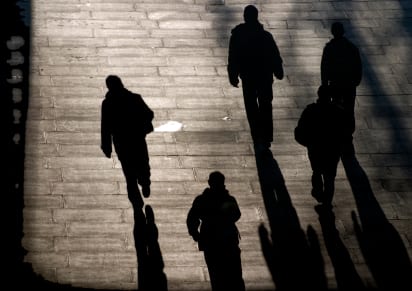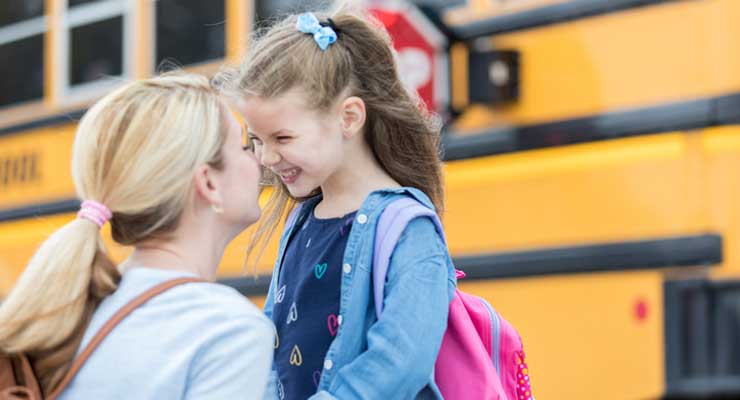 “Two Elementary School Teachers: Mark Berndt and Martin Springer were arrested and charged with committing lewd acts upon children.”
“Two Elementary School Teachers: Mark Berndt and Martin Springer were arrested and charged with committing lewd acts upon children.”
Are you outraged by this headline? This recent news of Miramonte Elementary school in California where not one, not two, but maybe three or more adults abused children is one of those stories that makes you feel sick to your stomach.
We can’t help but think of all the children who have been through this school. How many may have been abused? Will we ever really know how many there were? Most children do not report abuse. But what we do know is that once again, this is a story of adults who turned a blind eye and failed to protect children. What is it going to take to get the world to understand that child abuse is an epidemic – a sickness that invades our schools, sports fields, places of worship and our homes? A sickness that’s difficult to sometimes “see,” but still life-threatening as the consequences for survivors are felt forever.
The child abuse epidemic needs to be treated and we believe the treatment is prevention education. However, that can only happen when the world understands that this is not going away, it is just getting worse and that these children being harmed are the future leaders of the world. We need them safe, we need them whole and most importantly they deserve to be safe and have joy in their life.
We must start by educating all adults. Here are some tips for parents to help keep their children safe at school:
Be aware of adults who…
- Single out your child or a few children to be alone with them
- Give your child gifts or money
- Are preoccupied with children
- Are more comfortable with children than adults
- Are overly physical with children – hugging, tickling, and handling children.
- Talk to children about inappropriate topics, their bodies, sexual topics
- Offer to babysit, tutor or play with your child – especially if they don’t have kids
- Contact your children (via text, phone, Facebook etc.)
- Share their personal information with children. It is inappropriate. It is crossing boundaries. It is gross misconduct.
And most importantly, you need to have open communication with your children. At KidSafe, we talk to parents and discuss listening to your gut instincts, your intuition – please don’t suppress it in an attempt to believe that everybody is decent and good because when you do that, you put your children at risk of harm. If it seems too good to be true….it may just be too good to be true. Which is unfortunately why stories of abuse can be so shocking – the teacher, coach, babysitter was often known as the “best” most wonderful person making it hard for people to believe that they could have done what they are accused of. (This is all part of a predator’s grooming process.)
The following topics should be open and ongoing conversations:
- Your child’s body with regards to safe and unsafe touches. You cannot be scared to talk with children about this. You should be much more scared NOT to talk with your children. (Predators look for children whose parents don’t talk about these important issues.)
- Discuss proper names for body parts. Make sure children know that privates are all the parts of the body covered by bathing suits and are called “private” because they are meant just for you – no one else.
- Discuss the fact that their bodies are special and belong to them. Children should know that no one (not even an adult they know) should ever make them feel confused, uncomfortable, nervous or scared. If they ever do feel this way then they have permission to report to a trusted adult.
- Discuss the importance of reporting and how to report to a trusted adult if they receive an unsafe touch or are asked to keep a secret that makes them feel confused or uncomfortable.
- Discuss the “red flags of behavior” and “red flags of secrets.” Good secrets have a happy ending, a time limit, and the person asking you to keep the secret ultimately wants you to tell – a good example is a surprise party. Bad secrets make you feel uncomfortable, confused, nervous, scared, and have no time limit. If someone says “Don’t tell a parent” that is a sure sign that you should report to a trusted adult.
The reality is that at the end of the day, every child is vulnerable to child abuse. However, a child who has open communication with their parents, a child who is taught to not keep secrets, a child who is taught safe and unsafe touch and boundaries becomes a much harder target for a predator. And as savvy as the predators can be …they are looking for an easy target.
Let’s cure the epidemic of child abuse by empowering our children and educating ourselves and all adults about signs, symptoms what to be aware of to prevent abuse. Let’s make our children hard targets for predators. For more information visit www.kidsafefoundation.org to learn how to talk to your children about these sensitive topics, and please read our 2011 Award Winning Safety Book – “My Body is Special and Belongs To ME!”





